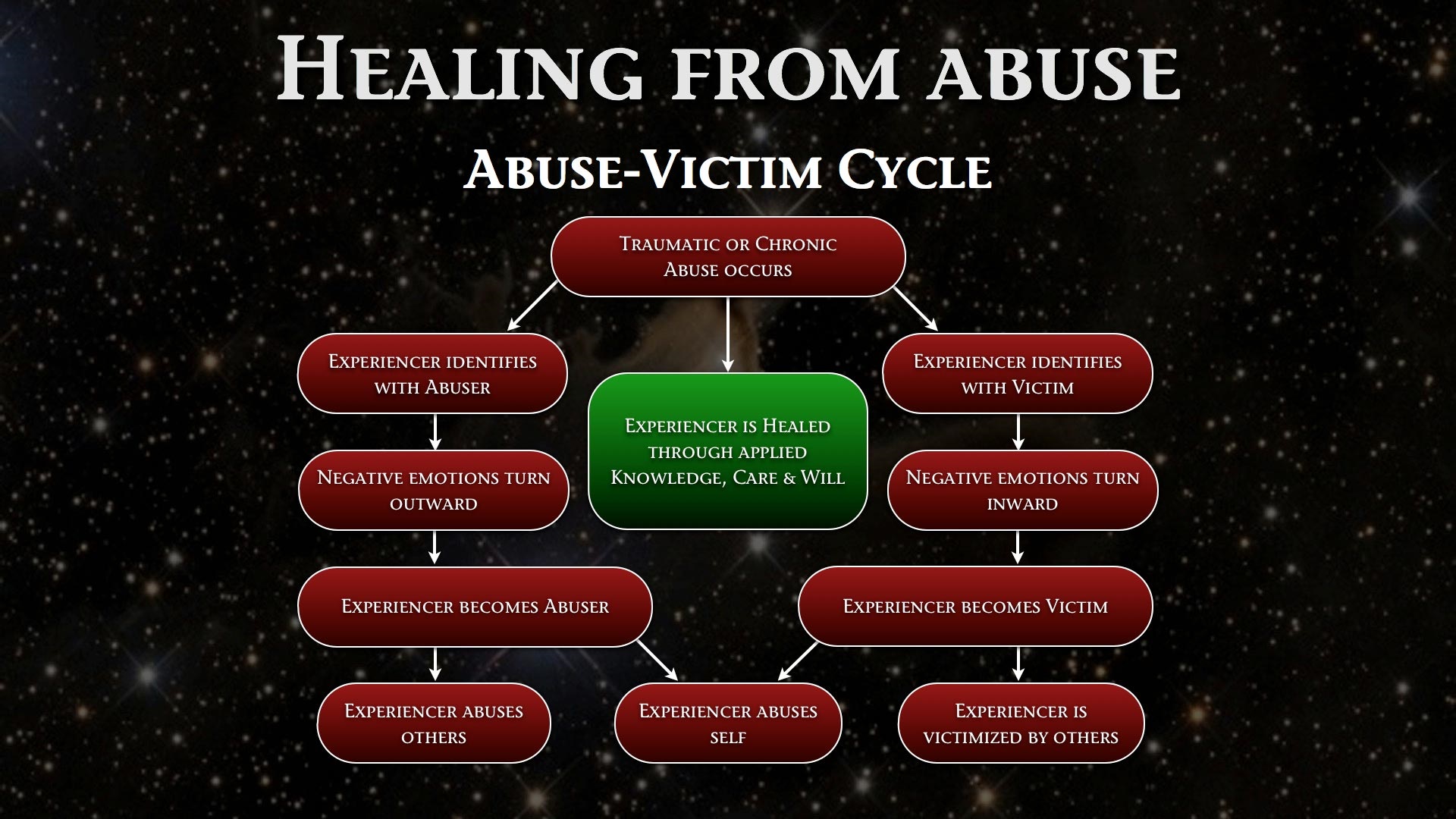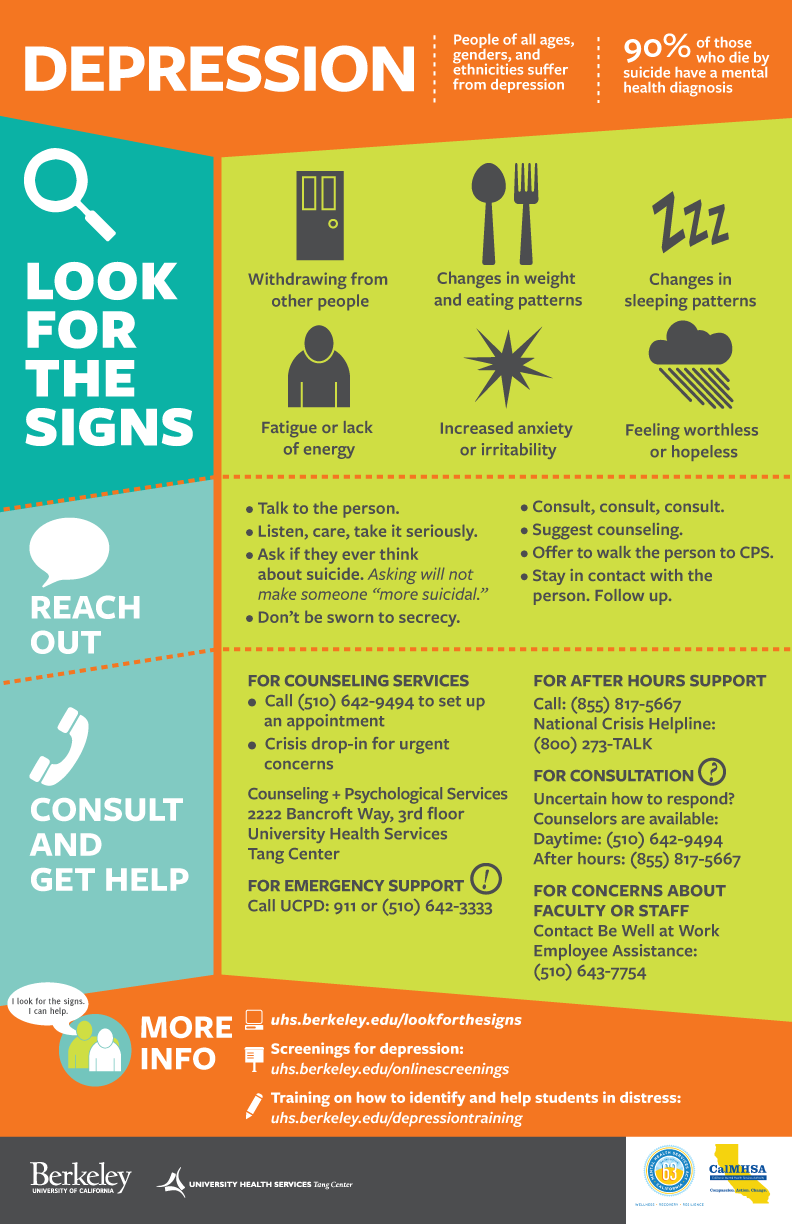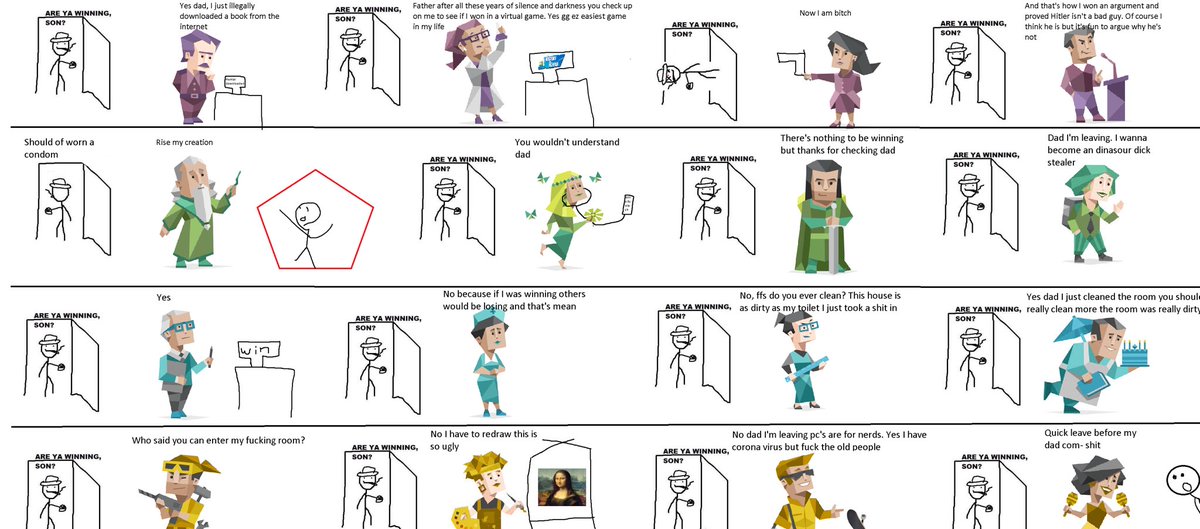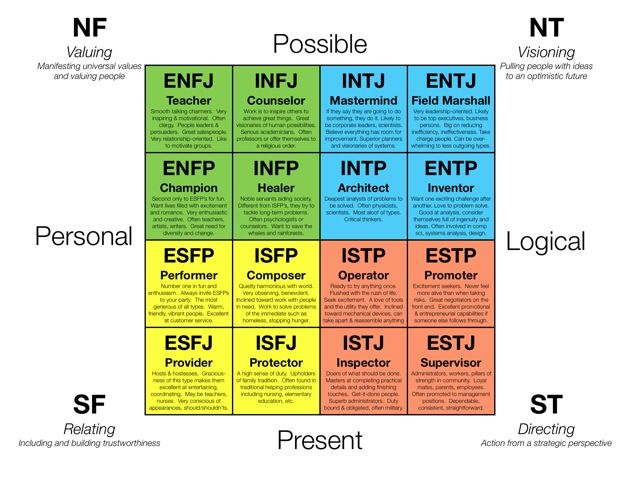Emotional manipulation tactics
7 Manipulation Tactics to Know
Manipulative tendencies can surface in any relationship. Knowing what to look for can help you avoid them.
Manipulation can happen to anyone in all kinds of relationships, from friends and romantic partnerships to parents and family relationships. Even work colleagues and your boss might have manipulative tendencies.
Yet, a manipulative person can be hard to recognize.
Manipulation in relationships can sometimes be so subtle and effective, you may wind up questioning your perception of the situation, rather than the other person’s actions or motives. Gaslighting can make discerning manipulative tactics especially difficult.
But by learning what to look for, you may be able to protect yourself from manipulation tactics and psychological games before they start.
Manipulative people often use common manipulation tactics and behaviors to get what they want. Here’s what to look for.
Guilt-tripping
Guilt-tripping is when someone tries to make you feel responsible or guilty of your actions or decisions.
Drake explains that guilt trips often involve using something one person did for the other as “leverage” to get what they want.
Some examples of guilt-tripping might be:
- “If it wasn’t for me, you wouldn’t have gotten through college. You owe me.”
- “I’m the one who is working all the time, while you are spending time with friends. I deserve this expense.”
- “If you can’t come over, then I might as well not invite anyone else that night. There’s no point then.”
Lying
People with manipulative tendencies often lie to try to control or coerce others, as well as avoid blame or consequences for their actions.
For example, a teenager who’s been told they are not allowed to hang out with a particular group might lie about their whereabouts. Or, they may lie to the other parent about being given permission to go out with their friends.
“If one parent doesn’t check in with the other parent, the teen may be given permission to go with those friends,” Drake explains.
Pathological lying may be a sign of a mental health condition.
Flattery
It can be hard to tell the difference between a compliment and flattery.
A compliment is given to sincerely point out something positive with no expectation of gain. But flattery is often used disingenuously as a tool to gain emotional leverage. With flattery, there’s often an expectation of getting something in return.
For instance, someone who wants a raise or promotion might regularly praise their manager’s strengths and accomplishments.
Projection
Projection happens when one person claims an emotion they’re feeling — such as jealousy — is actually being experienced by someone else.
For example, a person with manipulative tendencies might cause tension and drama, but blame someone else for creating that energy.
Maggie Holland, a licensed counselor in the state of Washington, explains that projecting aids a person who manipulates in dodging responsibility for their actions and helps them avoid changing their behaviors. “But it can also erode your trust in your own reality,” she adds.
“But it can also erode your trust in your own reality,” she adds.
If you think you might be projecting, Holland suggests pausing and asking yourself: “Is this my stuff or their stuff?” This can be helpful for disrupting projection.
“It’s also really important that we don’t project our own values onto a manipulator, because that just sets us up for a lot of disappointment and frustration,” Holland adds.
‘Moving the goalposts’
Sometimes, no matter how much you show up for someone who manipulates, they will change their expectations at the last minute to keep you constantly running toward their “goalposts.”
Someone who moves the goalposts can set you up for frustration and exhaustion.
Holland explains that with manipulative people, “you’re never going to actually reach those goalposts, and your efforts and success won’t be acknowledged if you do.”
Believing in yourself, recognizing your own needs, and disengaging can be helpful for avoiding feelings of demoralization.
Holland suggests working to understand your personal values, goals, and standards to feel like you met your own expectations.
“Remind yourself that you’re just a human being, doing the best you can, and that is enough.”
Triangulation
Triangulation can take many forms, but often happens when a third person is brought into your communication, instead of keeping the issue between the two people it impacts.
For example, a manipulative person might involve your mother in a disagreement to take their side against you. “Now, all of a sudden, you’re disagreeing with two people and the odds are not in your favor,” Holland explains.
According to Holland, triangulation often keeps manipulative people from having to take responsibility and may protect them from feeling like they’ve lost an argument.
Becoming aware of triangulation can be helpful for spotting it. Try to disengage with “triangles” whenever they come up unfairly.
“This means you’re going to have to set and stick to some firm boundaries, but remember that boundaries are not meant to control people, but to ensure that you’re still able to remain in a relationship with them in a healthy way,” says Holland. “Boundaries are not heartless, they’re actually really healthy.”
“Boundaries are not heartless, they’re actually really healthy.”
Love bombing
Love bombing is manipulation through excessive attention, often showering you inappropriately with gifts, compliments, affection, and time.
These things may be wonderful, which can be confusing. However, love bombing is when this feels enrapturing, takes all your attention, and is excessive.
“It might feel great at first, but it usually leaves you isolated and makes you lose sight of who you are,” Holland explains. “Once you’re ‘swept away,’ this attention might stop, and will leave you feeling like you’re seeking it out or chasing it down again.”
If you’ve already experienced love bombing and are on the other side, give yourself patience and work to forgive yourself. “You’re not blind. A manipulative person took advantage of your normal human nature to want to feel desired and cherished,” Holland adds.
Some ways to avoid love bombing include:
- regularly spending time with friends and loved ones
- engaging in your own interests outside of this person
- checking in with yourself often to ensure that you’re aligned with your values and standards
Manipulation is coercive or unethical behavior driven by the goal of exploiting or controlling another person for your own personal gain.
Taylor Draughn, a licensed professional counselor, and marriage and family therapist, explains that manipulation “can be a very effective way to get what you want, but it can also be very dangerous.”
She adds, “If someone can manipulate you, they can control your actions and your thoughts. It is important to be aware of the signs of manipulation so that you can protect yourself from this type of abuse.”
While manipulative tendencies are often subtle and sometimes undetectable, there are four stages of manipulation.
- Flattery. The first stage is when the person who manipulates puts on a facade of being kind, caring, and helpful. “They may act like they want to help you with anything you need, but in reality, they’re just trying to get what they want from you,” Draughn explains.
- Isolation. This is when the person who manipulates may start to isolate you from your friends and family. They might try to convince you that your loved ones don’t understand you or want to control you.
 The goal is usually to separate you from people who might spot the manipulation, Draughn explains.
The goal is usually to separate you from people who might spot the manipulation, Draughn explains. - Devaluing and gaslighting. During the third stage, someone who manipulates may try to make you feel guilty or confused. “They might start telling you that you’re ungrateful, or that you’re making them unhappy,” says Draughn. The purpose of this stage is to make you doubt yourself, your instincts, and your decisions. “It can be very difficult to break free from the manipulator’s control at this stage,” Draughn adds.
- Fear or violence. The fourth and final stage is when the person who manipulates may begin to threaten you. According to Draughn, they may threaten to leave you, hurt you, or hurt themselves as a way of keeping you under their control with fear. “It can be very difficult to break free from someone who is using threats as a form of manipulation.”
People manipulate others for many reasons, including:
- Control.
 People who manipulate might be driven by a need for control or controlling tendencies, which may feel thrilling.
People who manipulate might be driven by a need for control or controlling tendencies, which may feel thrilling. - Low self-esteem. Manipulation can be a way for a person to avoid feeling bad about themselves. Jason Drake, lead clinician and owner of Katy Teen & Family Counseling, says that “People manipulate largely due to lack of self-confidence or self-esteem.” “They may not feel that they have the ability to get what they want on their own merits,” he says.
- Ego. A common reason among narcissistic people, someone who manipulates “may believe that they are the brightest and most capable person around, and might use manipulation to feed their ego that they can outsmart others and gain from their efforts,” Drake explains.
- Personal gain. A manipulative person might use these tactics to obtain something they want, such as money, power, or attention.
- Avoidance. Manipulation might offer a way to avoid taking responsibility for their own actions.

Manipulation can be sneaky, but you can work to avoid it with these strategies:
- Know the signs. People who manipulate often exhibit similar types of behaviors. Watch out for people who are overly friendly, make empty promises, or try to make you feel guilty, Draughn explains.
- Be aware of your emotions. Evoking strong emotions is at the core of most manipulation methods. “People who use manipulation often play on your emotions, but remember that you can’t let them control how you feel,” says Draughn.
- Stay calm. It can be important to stay in control of yourself and not lose your cool when dealing with people who manipulate. “Don’t let them rattle you or get under your skin,” Draughn explains.
- Avoid personalizing. Even though manipulation can be hurtful, try to internalize that this behavior has nothing to do with you. “Manipulation has more to do with the other person and their inability to meet their own needs in a healthy way,” says Drake.

- Listen. While it doesn’t feel good for someone to attempt to manipulate you, being confrontational can inflame the situation. Try listening with empathy so that you can identify what their needs or wants are, Drake suggests.
- Respect your boundaries. After listening to the other person and feeling that you are being manipulated, it’s important to hold healthy limits and boundaries in check. “If you respond respectfully, yet assertively, and [don’t] give in to the manipulation, over time, they will generally see you as someone their tactics don’t work on and will move on,” Drake explains.
- Tell someone you trust. It can be emotionally draining and hurtful in dealing with someone who is manipulative. Talking with a close friend or family member about what you’re experiencing can be healing. “Close friends and family can often give you great feedback and advice, and it’s helpful to have a listening ear when dealing with someone who manipulates,” Drake adds.

People with manipulative tendencies may use these tactics to manipulate others for a variety of reasons.
If you have been the target of manipulation, it can feel confusing and hurtful. Try to understand that a manipulative person’s behavior is not a reflection of you, and you don’t have to accept negative treatment and manipulation.
Manipulation can sometimes be subtle enough to go unrecognized. But more often than not, manipulative people use similar behaviors that can be spotted. Knowing what to look for and responding can help you avoid manipulation.
The effects of manipulation can impact your mental health. Talking with a therapist can help you process what’s happened and teach you new skills for moving forward.
If you’re ready to seek help but don’t know where to start, check out Psych Central’s guide to finding mental health care.
7 Manipulation Tactics to Know
Manipulative tendencies can surface in any relationship. Knowing what to look for can help you avoid them.
Manipulation can happen to anyone in all kinds of relationships, from friends and romantic partnerships to parents and family relationships. Even work colleagues and your boss might have manipulative tendencies.
Yet, a manipulative person can be hard to recognize.
Manipulation in relationships can sometimes be so subtle and effective, you may wind up questioning your perception of the situation, rather than the other person’s actions or motives. Gaslighting can make discerning manipulative tactics especially difficult.
But by learning what to look for, you may be able to protect yourself from manipulation tactics and psychological games before they start.
Manipulative people often use common manipulation tactics and behaviors to get what they want. Here’s what to look for.
Guilt-tripping
Guilt-tripping is when someone tries to make you feel responsible or guilty of your actions or decisions.
Drake explains that guilt trips often involve using something one person did for the other as “leverage” to get what they want.
Some examples of guilt-tripping might be:
- “If it wasn’t for me, you wouldn’t have gotten through college. You owe me.”
- “I’m the one who is working all the time, while you are spending time with friends. I deserve this expense.”
- “If you can’t come over, then I might as well not invite anyone else that night. There’s no point then.”
Lying
People with manipulative tendencies often lie to try to control or coerce others, as well as avoid blame or consequences for their actions.
For example, a teenager who’s been told they are not allowed to hang out with a particular group might lie about their whereabouts. Or, they may lie to the other parent about being given permission to go out with their friends.
“If one parent doesn’t check in with the other parent, the teen may be given permission to go with those friends,” Drake explains.
Pathological lying may be a sign of a mental health condition.
Flattery
It can be hard to tell the difference between a compliment and flattery.
A compliment is given to sincerely point out something positive with no expectation of gain. But flattery is often used disingenuously as a tool to gain emotional leverage. With flattery, there’s often an expectation of getting something in return.
For instance, someone who wants a raise or promotion might regularly praise their manager’s strengths and accomplishments.
Projection
Projection happens when one person claims an emotion they’re feeling — such as jealousy — is actually being experienced by someone else.
For example, a person with manipulative tendencies might cause tension and drama, but blame someone else for creating that energy.
Maggie Holland, a licensed counselor in the state of Washington, explains that projecting aids a person who manipulates in dodging responsibility for their actions and helps them avoid changing their behaviors. “But it can also erode your trust in your own reality,” she adds.
If you think you might be projecting, Holland suggests pausing and asking yourself: “Is this my stuff or their stuff?” This can be helpful for disrupting projection.
“It’s also really important that we don’t project our own values onto a manipulator, because that just sets us up for a lot of disappointment and frustration,” Holland adds.
‘Moving the goalposts’
Sometimes, no matter how much you show up for someone who manipulates, they will change their expectations at the last minute to keep you constantly running toward their “goalposts.”
Someone who moves the goalposts can set you up for frustration and exhaustion.
Holland explains that with manipulative people, “you’re never going to actually reach those goalposts, and your efforts and success won’t be acknowledged if you do.”
Believing in yourself, recognizing your own needs, and disengaging can be helpful for avoiding feelings of demoralization.
Holland suggests working to understand your personal values, goals, and standards to feel like you met your own expectations.
“Remind yourself that you’re just a human being, doing the best you can, and that is enough.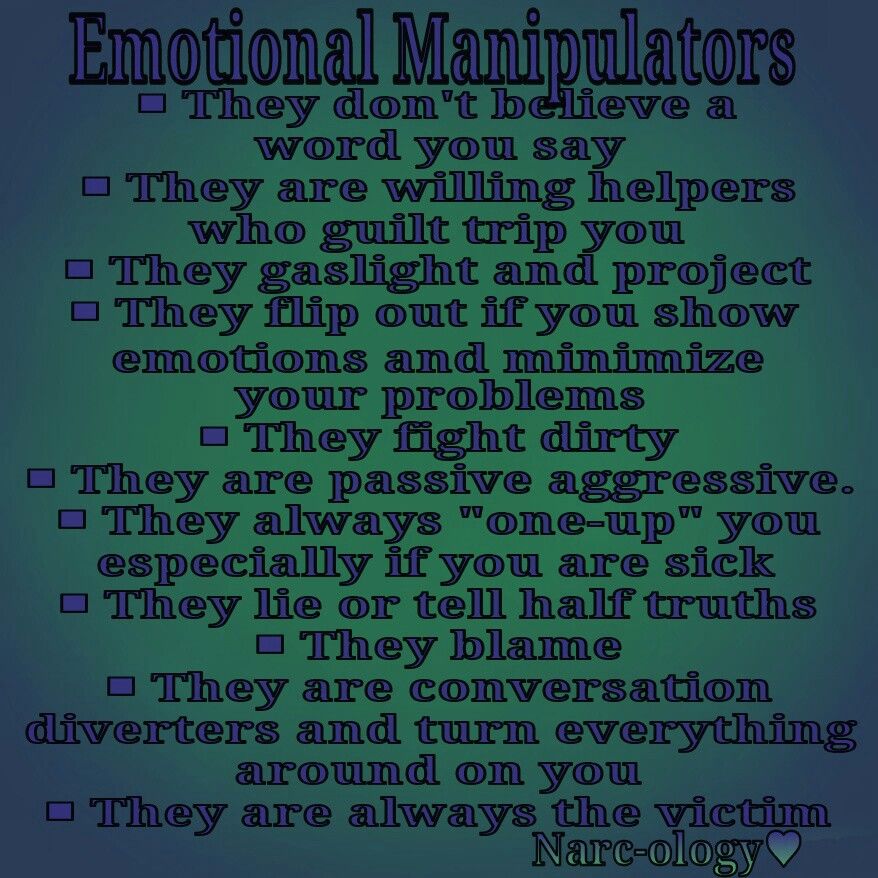 ”
”
Triangulation
Triangulation can take many forms, but often happens when a third person is brought into your communication, instead of keeping the issue between the two people it impacts.
For example, a manipulative person might involve your mother in a disagreement to take their side against you. “Now, all of a sudden, you’re disagreeing with two people and the odds are not in your favor,” Holland explains.
According to Holland, triangulation often keeps manipulative people from having to take responsibility and may protect them from feeling like they’ve lost an argument.
Becoming aware of triangulation can be helpful for spotting it. Try to disengage with “triangles” whenever they come up unfairly.
“This means you’re going to have to set and stick to some firm boundaries, but remember that boundaries are not meant to control people, but to ensure that you’re still able to remain in a relationship with them in a healthy way,” says Holland. “Boundaries are not heartless, they’re actually really healthy. ”
”
Love bombing
Love bombing is manipulation through excessive attention, often showering you inappropriately with gifts, compliments, affection, and time.
These things may be wonderful, which can be confusing. However, love bombing is when this feels enrapturing, takes all your attention, and is excessive.
“It might feel great at first, but it usually leaves you isolated and makes you lose sight of who you are,” Holland explains. “Once you’re ‘swept away,’ this attention might stop, and will leave you feeling like you’re seeking it out or chasing it down again.”
If you’ve already experienced love bombing and are on the other side, give yourself patience and work to forgive yourself. “You’re not blind. A manipulative person took advantage of your normal human nature to want to feel desired and cherished,” Holland adds.
Some ways to avoid love bombing include:
- regularly spending time with friends and loved ones
- engaging in your own interests outside of this person
- checking in with yourself often to ensure that you’re aligned with your values and standards
Manipulation is coercive or unethical behavior driven by the goal of exploiting or controlling another person for your own personal gain.
Taylor Draughn, a licensed professional counselor, and marriage and family therapist, explains that manipulation “can be a very effective way to get what you want, but it can also be very dangerous.”
She adds, “If someone can manipulate you, they can control your actions and your thoughts. It is important to be aware of the signs of manipulation so that you can protect yourself from this type of abuse.”
While manipulative tendencies are often subtle and sometimes undetectable, there are four stages of manipulation.
- Flattery. The first stage is when the person who manipulates puts on a facade of being kind, caring, and helpful. “They may act like they want to help you with anything you need, but in reality, they’re just trying to get what they want from you,” Draughn explains.
- Isolation. This is when the person who manipulates may start to isolate you from your friends and family. They might try to convince you that your loved ones don’t understand you or want to control you.
 The goal is usually to separate you from people who might spot the manipulation, Draughn explains.
The goal is usually to separate you from people who might spot the manipulation, Draughn explains. - Devaluing and gaslighting. During the third stage, someone who manipulates may try to make you feel guilty or confused. “They might start telling you that you’re ungrateful, or that you’re making them unhappy,” says Draughn. The purpose of this stage is to make you doubt yourself, your instincts, and your decisions. “It can be very difficult to break free from the manipulator’s control at this stage,” Draughn adds.
- Fear or violence. The fourth and final stage is when the person who manipulates may begin to threaten you. According to Draughn, they may threaten to leave you, hurt you, or hurt themselves as a way of keeping you under their control with fear. “It can be very difficult to break free from someone who is using threats as a form of manipulation.”
People manipulate others for many reasons, including:
- Control.
 People who manipulate might be driven by a need for control or controlling tendencies, which may feel thrilling.
People who manipulate might be driven by a need for control or controlling tendencies, which may feel thrilling. - Low self-esteem. Manipulation can be a way for a person to avoid feeling bad about themselves. Jason Drake, lead clinician and owner of Katy Teen & Family Counseling, says that “People manipulate largely due to lack of self-confidence or self-esteem.” “They may not feel that they have the ability to get what they want on their own merits,” he says.
- Ego. A common reason among narcissistic people, someone who manipulates “may believe that they are the brightest and most capable person around, and might use manipulation to feed their ego that they can outsmart others and gain from their efforts,” Drake explains.
- Personal gain. A manipulative person might use these tactics to obtain something they want, such as money, power, or attention.
- Avoidance. Manipulation might offer a way to avoid taking responsibility for their own actions.
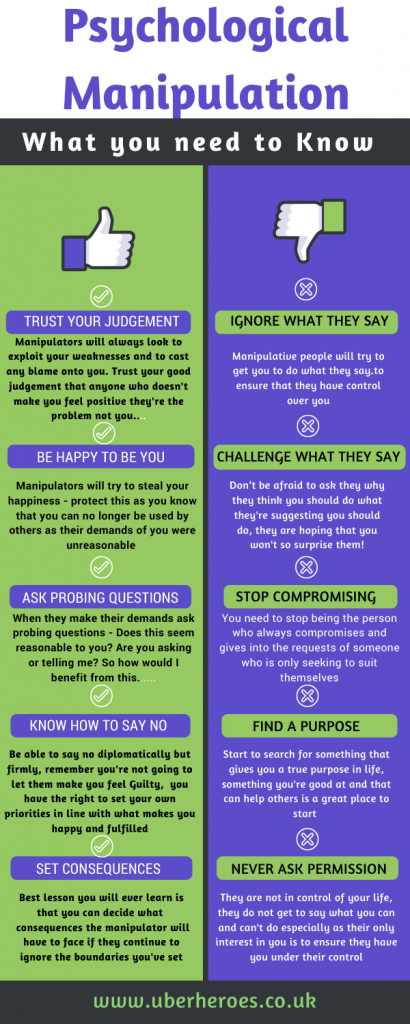
Manipulation can be sneaky, but you can work to avoid it with these strategies:
- Know the signs. People who manipulate often exhibit similar types of behaviors. Watch out for people who are overly friendly, make empty promises, or try to make you feel guilty, Draughn explains.
- Be aware of your emotions. Evoking strong emotions is at the core of most manipulation methods. “People who use manipulation often play on your emotions, but remember that you can’t let them control how you feel,” says Draughn.
- Stay calm. It can be important to stay in control of yourself and not lose your cool when dealing with people who manipulate. “Don’t let them rattle you or get under your skin,” Draughn explains.
- Avoid personalizing. Even though manipulation can be hurtful, try to internalize that this behavior has nothing to do with you. “Manipulation has more to do with the other person and their inability to meet their own needs in a healthy way,” says Drake.
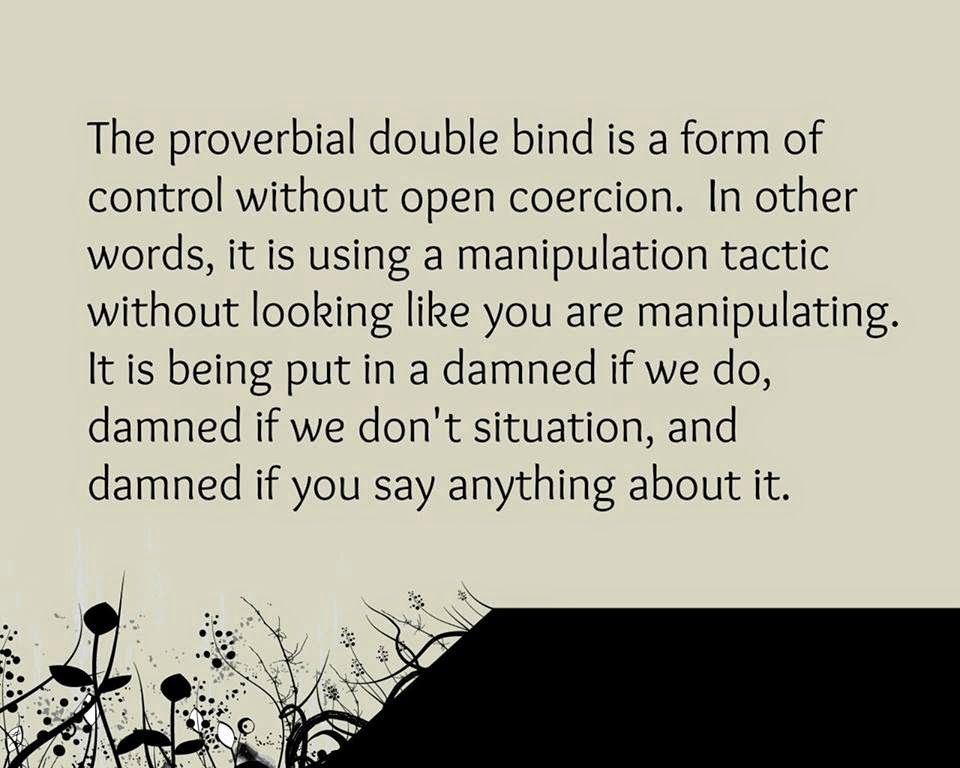
- Listen. While it doesn’t feel good for someone to attempt to manipulate you, being confrontational can inflame the situation. Try listening with empathy so that you can identify what their needs or wants are, Drake suggests.
- Respect your boundaries. After listening to the other person and feeling that you are being manipulated, it’s important to hold healthy limits and boundaries in check. “If you respond respectfully, yet assertively, and [don’t] give in to the manipulation, over time, they will generally see you as someone their tactics don’t work on and will move on,” Drake explains.
- Tell someone you trust. It can be emotionally draining and hurtful in dealing with someone who is manipulative. Talking with a close friend or family member about what you’re experiencing can be healing. “Close friends and family can often give you great feedback and advice, and it’s helpful to have a listening ear when dealing with someone who manipulates,” Drake adds.

People with manipulative tendencies may use these tactics to manipulate others for a variety of reasons.
If you have been the target of manipulation, it can feel confusing and hurtful. Try to understand that a manipulative person’s behavior is not a reflection of you, and you don’t have to accept negative treatment and manipulation.
Manipulation can sometimes be subtle enough to go unrecognized. But more often than not, manipulative people use similar behaviors that can be spotted. Knowing what to look for and responding can help you avoid manipulation.
The effects of manipulation can impact your mental health. Talking with a therapist can help you process what’s happened and teach you new skills for moving forward.
If you’re ready to seek help but don’t know where to start, check out Psych Central’s guide to finding mental health care.
4 negotiation manipulation | Blog RSV
Contents of the article
Manipulation is a hidden influence on the interlocutor in order to force him to do certain actions. At the same time, the person who is influenced thinks that he makes his own decision. Negotiations often use manipulation to win. Therefore, it is important to know the most common tactics in order to avoid traps and not fall for the tricks of the manipulator.
At the same time, the person who is influenced thinks that he makes his own decision. Negotiations often use manipulation to win. Therefore, it is important to know the most common tactics in order to avoid traps and not fall for the tricks of the manipulator.
Emotional suppression
This manipulation is aimed at evoking the following emotions: fear, tension, guilt, confusion, shame, self-doubt. Tough negotiators may start the meeting with an emotional introduction or with a long silence to test the opponent's ability to resist manipulation. During emotional pressure, a person may feel that the situation is getting out of control, he is an incompetent specialist and his idea is irrelevant.
Example: when you present your product and name the price, the manipulator may start to sigh loudly, look in disbelief and even flinch. He deliberately provokes you to get a discount. In the process of communication, you feel awkward and are in a state of shock. You seem to be unsettled, and you are ready to make concessions.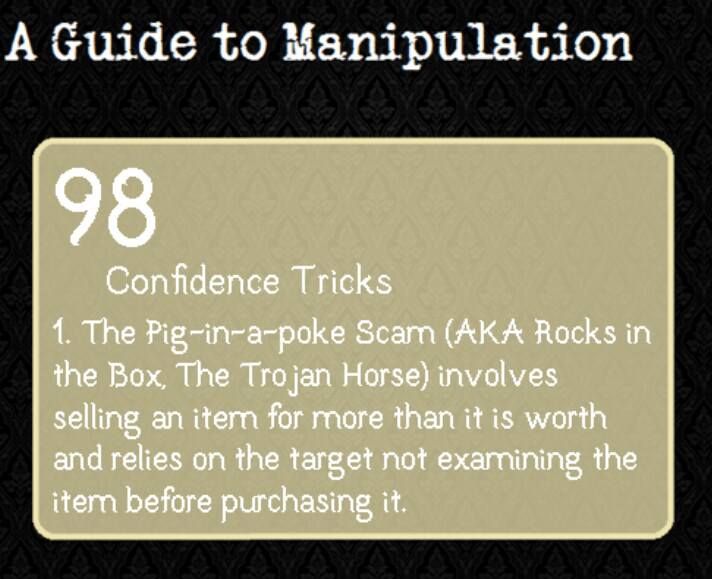
Trust or mutual exchange
The technique is designed to activate such emotions as honesty, pity, humanity, shame, kindness. It is these feelings that make a person fulfill a request in which the manipulator is interested. “You are doing well, but we are doing poorly. You should be ashamed of that."
Often manipulators use the rule of reciprocity: they present small gifts, make compliments in order to gain confidence and the person becomes obligated to them. Then they are asked to fulfill a request that is incommensurable with a compliment made earlier or a donated notebook. It is hard for the interlocutor to refuse, and he gets down to business.
Change of circumstances
Manipulators deliberately create unexpected circumstances for the interlocutor, which he cannot check right on the spot and he has to act thoughtlessly. For example, during a project presentation, clients may tell you that competitors have made them a better offer. But if you give a discount, they are ready to think.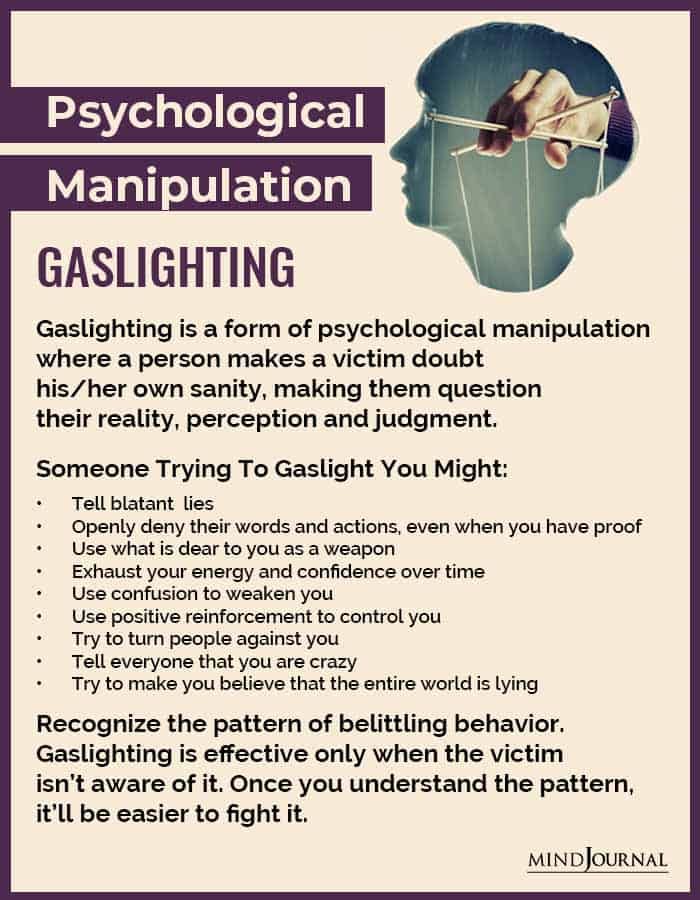 Or another situation: they offer you a bonus and say that the decision needs to be made right now, there is no time to think.
Or another situation: they offer you a bonus and say that the decision needs to be made right now, there is no time to think.
Redundant information
The method is to confuse a person with redundant or unstructured data. The manipulator can bombard you with facts at such a speed that you simply do not have time to analyze them. Or call one amount in rubles, then convert it into foreign currency, subtract interest from it in order to allegedly offer favorable conditions. As a result, when you agree to a deal, you will see a completely different value in the contract.
There are other types of manipulation that you may encounter in any negotiation. Therefore, it is important to prepare in advance: analyze the opponent, choose a strategy, prepare a plan and collect information about the product. Get step-by-step guidance on how to prepare for meetings in our free online course Conducting Effective Negotiations. Registration on the site will take 2 minutes.
how and why are they used? —NegoExpert
Emotional or psychological manipulation is designed to influence the behavior of another person using certain tactics that are not noticeable either to the person or others.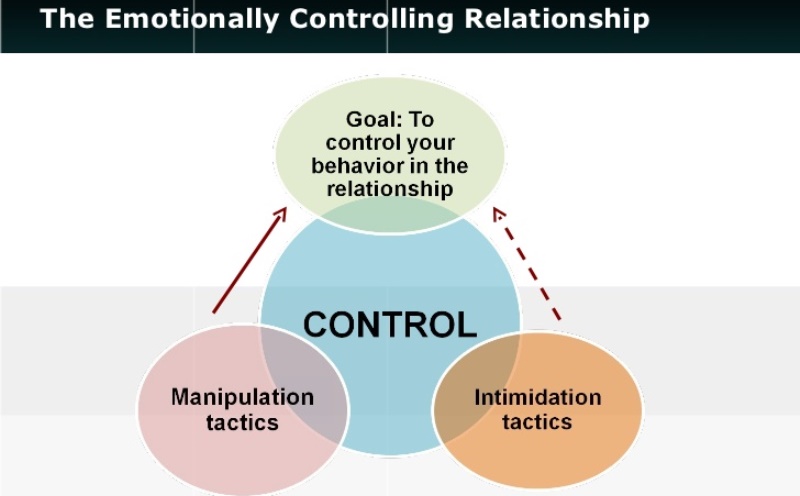 The goal of the manipulator is not only to change the behavior of the person being manipulated, but also to convince him that there is no other way out of this situation or that his relationship with the manipulator is inevitable.
The goal of the manipulator is not only to change the behavior of the person being manipulated, but also to convince him that there is no other way out of this situation or that his relationship with the manipulator is inevitable.
There is a difference between persuasion and emotional manipulation. Persuasion does not accept pressure and respects the other person's right to choose whether to accept or reject the proposed behavior. In the case of manipulation, at first it may seem that a person can choose, but under the external freedom of choice there will always be a situation of emotional pressure or coercion.
In the process of emotional manipulation, two parties are involved - the manipulator and the manipulated:
Manipulator: The purpose of the manipulator is to control another person to achieve their own benefit, emotional or personal.
Manipulable: Not everyone can be easily manipulated. The most vulnerable to manipulation are people who lack self-confidence.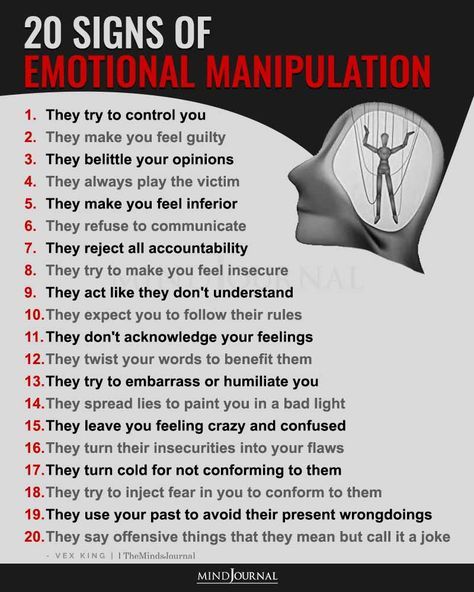 Usually they are submissive, open, sometimes naive people who seek support or salvation in the hands of a strong manipulator.
Usually they are submissive, open, sometimes naive people who seek support or salvation in the hands of a strong manipulator.
Examples of manipulative tactics:
Various techniques can be used in the process of manipulation. Some are obvious, others are difficult to distinguish, so that they can be identified and analyzed.
Here are some tactics you may encounter:
1. Suggestion feelings guilt :
Guilt is a powerful negative motivator. Manipulators know from experience that it is fairly easy to make a person feel guilty. They see that the victim self-confesses his mistakes and shortcomings, feels unnecessarily embarrassed and tries to apologize. Gradually, they make their victim feel that they are not good enough, not caring enough, or selfish enough, and so on. In fact, in most cases, it is the manipulator that has many of these qualities.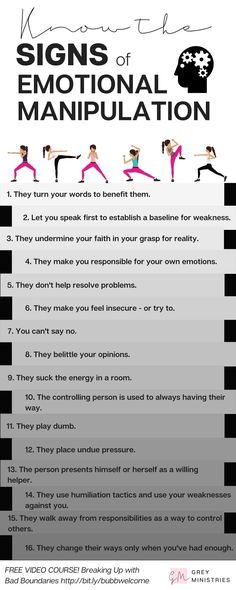
At the same time, the victim of manipulation cannot think rationally to understand that this is not true, because he/she is programmed to have self-doubt, feel guilty and idealize other people along with the devaluation of their own personality.
2. Winning sympathy :
The manipulator may choose to play the role of victim to gain favor and cooperation if other tactics fail. It is not difficult for a manipulator to evoke a feeling of compassion or pity in a person who is ready to empathize, since such people cannot resist seeing someone suffer or be in pain. Having hooked the victim, the manipulator continues to complain about life, about how unfairly he was treated by others or fate, gradually forcing his victim to sympathize and empathize more and more.
3. Intimidation tactics :
Threats can be overt or covert. Looking intimidating, ignoring the other person, expressing anger or disapproval are some of the acts of intimidation. Sometimes it is a simulation of rage and an explosion of emotions that are used to intimidate and subjugate a person.
Looking intimidating, ignoring the other person, expressing anger or disapproval are some of the acts of intimidation. Sometimes it is a simulation of rage and an explosion of emotions that are used to intimidate and subjugate a person.
Threats can range from scandalous behavior to destroy the victim's social status, to physical attacks and sometimes threats to cause physical suffering.
4. Seduction , Seduction , Flirt :
of this kind of manipulation are used to create a false sense of proximity and connect the sacrifice of relations. Emotional seduction through flattery, praise, courtship, and relationship building can be used in the short term to get the victim to drop their defenses and gain their trust.
As a rule, such tactics are short-lived and unpredictable, but due to the periodic positive increase in motivation, the victim is easy to hook.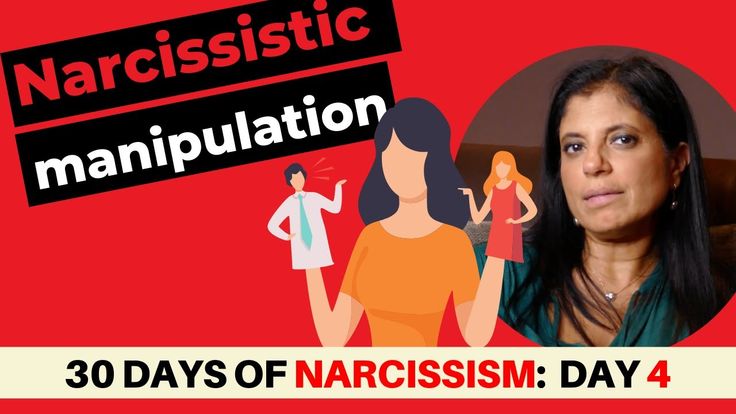
5. Deception :
Deception is the main part or core of manipulation: either by hiding a significant amount of true information, or by omitting some important facts or fabricating false stories. The manipulator may exaggerate or, conversely, minimize the facts, deceive and confuse his victim, paint an unrealistic picture of himself, his victim, or their relationship.
Simulation is another form of deception. The manipulator may deny that he deliberately did something wrong or that he did not realize the effect it would have on the victim, while demonstrating surprise or indignation. Also, outright lying in the form of denial: "What are you talking about?", or feigning illness or imaginary pain, is sometimes used to gain sympathy and to weaken the victim's defenses.
6. Rationalization or justification :
The manipulator may use various techniques to explain the reasons for his behavior that make the victim vulnerable. If the victim is naive or unable to critically analyze the arguments, the manipulator may use false reasoning, faulty or "crooked" logic to overcome the victim's counterarguments.
If the victim is naive or unable to critically analyze the arguments, the manipulator may use false reasoning, faulty or "crooked" logic to overcome the victim's counterarguments.
If at the same time the victim feels guilty or feels shame and remorse, then the manipulator uses all the arguments that address precisely these vulnerabilities.
7. Denial , Unwillingness to recognize Facts :
The manipulator can directly deny any negative behavior or refuse to recognize it by simply evading discussion of this topic. The manipulator can turn the conversation to an unimportant topic or divert attention by switching to a completely different subject of conversation. Denial differs from deception in that a person is partially or completely unaware of the truth.
8. Aggression :
The manipulator may use actual aggression and violence to force the victim to submit to his will, especially if the victim is weaker or more limited.
